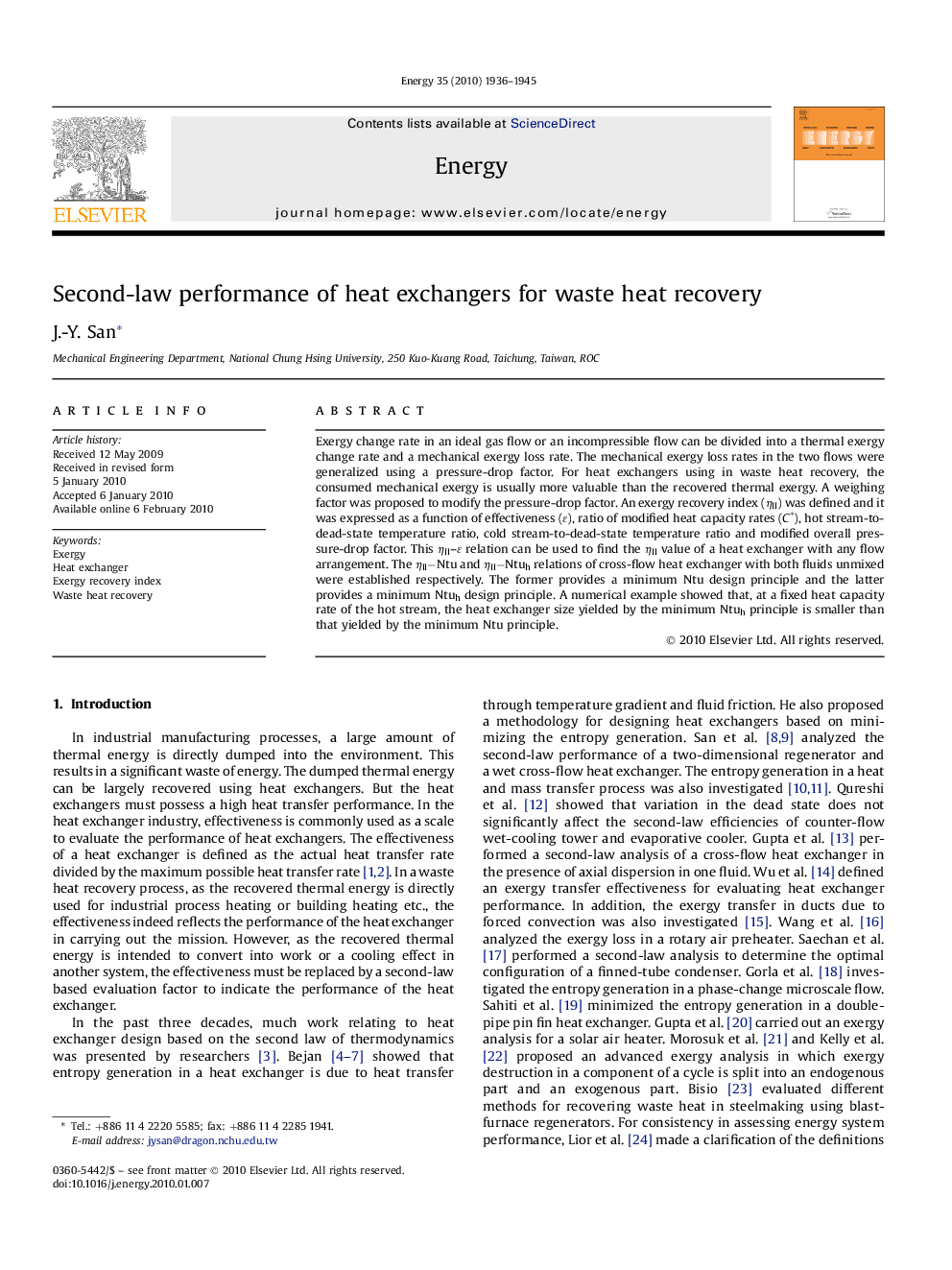| Article ID | Journal | Published Year | Pages | File Type |
|---|---|---|---|---|
| 1735518 | Energy | 2010 | 10 Pages |
Exergy change rate in an ideal gas flow or an incompressible flow can be divided into a thermal exergy change rate and a mechanical exergy loss rate. The mechanical exergy loss rates in the two flows were generalized using a pressure-drop factor. For heat exchangers using in waste heat recovery, the consumed mechanical exergy is usually more valuable than the recovered thermal exergy. A weighing factor was proposed to modify the pressure-drop factor. An exergy recovery index (ηII) was defined and it was expressed as a function of effectiveness (ɛ), ratio of modified heat capacity rates (C∗), hot stream-to-dead-state temperature ratio, cold stream-to-dead-state temperature ratio and modified overall pressure-drop factor. This ηII–ɛ relation can be used to find the ηII value of a heat exchanger with any flow arrangement. The ηII−Ntu and ηII−Ntuh relations of cross-flow heat exchanger with both fluids unmixed were established respectively. The former provides a minimum Ntu design principle and the latter provides a minimum Ntuh design principle. A numerical example showed that, at a fixed heat capacity rate of the hot stream, the heat exchanger size yielded by the minimum Ntuh principle is smaller than that yielded by the minimum Ntu principle.
